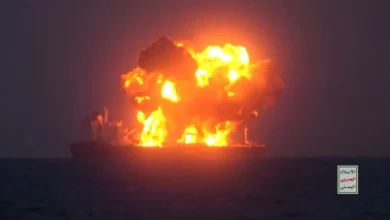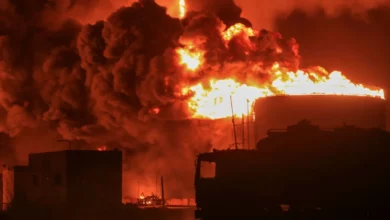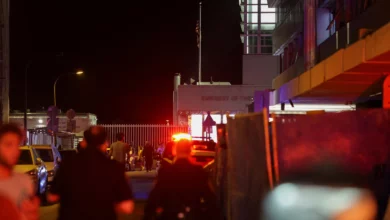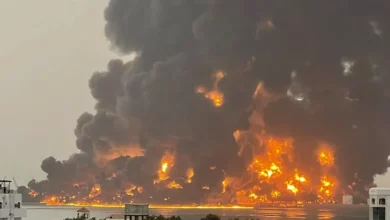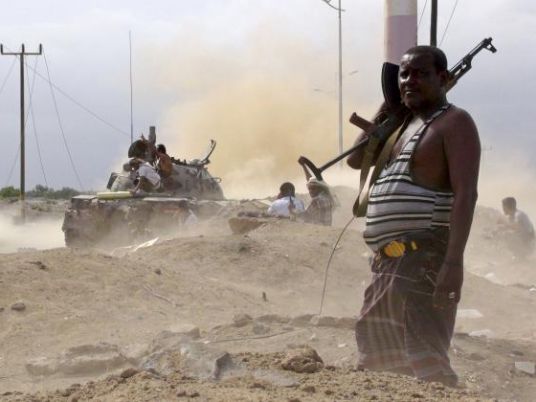
Al-Qaeda in Yemen said its leader, Nasser al-Wuhayshi, was killed in a US bombing, in major blow by the United States against the global militant group's strongest branch.
"We in Al-Qaeda in the Arabian Peninsula (AQAP) mourn to our Muslim nation … that Abu Baseer Nasser bin Abdul Karim al-Wuhayshi, God rest his soul, passed away in an American strike which targeted him along with two of his mujahideen brothers, may God rest their souls," said top AQAP member Khaled Batarfi .
The group had met and appointed its former military chief Qassim al-Raymi as his replacement, he said.
Al-Wuhayshi, a charismatic former associate of Osama bin Laden, led the group as it plotted foiled bomb attacks against international airliners and claimed responsibility for the deadly shooting at the French satirical newspaper Charlie Hebdo, calling it punishment for insulting the Prophet Mohammed.
The group has also orchestrated a number of spectacular attacks inside Yemen in recent years, targeting government ministries, military camps and soldiers, in which hundreds of people were killed.
Al-Qaeda did not specify how or when Wuhayshi was killed. Some residents of the southeastern Yemeni city of Mukalla reported a suspected drone strike on Friday.
But eyewitnesses said that last Tuesday, townspeople were gathering on the city's seaside corniche after evening prayers when an explosion killed three men, spreading their limbs across a street as panicked residents fled.
In an unusual move, Al-Qaeda gunmen cordoned off the area and gathered the bodies, residents said, leading them to believe a militant leader was among the dead.
CNN quoted two Yemeni officials as saying the attack that killed al-Wuhayshi occurred on Friday. US officials told the Washington Post an attack occurred on Tuesday, which was confirmed by Reuters.
Wuhayshi is the sixth major AQAP leader killed in suspected US bombings this year, despite political turmoil in Yemen that led to the closing of the US embassy and the evacuation of its military and intelligence personnel.
Late on Monday, a US official said it was examining reports of the militant chief's death, speaking on condition of anonymity on any possible US involvement.
The US military was not involved in any strike, a second official said. It was unclear whether a strike may have been carried out by the Central Intelligence Agency.
Wuhayshi, according to Gregory Johnson, author of a book on AQAP, was born in southern Yemen and traveled to Afghanistan for the first time in 1998 to join Al-Qaeda.
He met bin Laden there and acted as his aide-de-camp until 2001, when the group was scattered after the US-led invasion of Afghanistan following the September 11 attacks on the United States.
He became head of AQAP in 2009, several years after a daring prison break from a jail in Yemen.
In 2013, US sources said that an intercepted communication between Wuhayshi and Al-Qaeda leader Atman al-Zawahiri – believed to be based in Pakistan – was one component of a broader pool of intelligence that prompted a threat alert closing numerous US embassies in the Middle East and Africa.
AQAP has taken advantage of political chaos in Yemen in the wake of Arab Spring protests, which weakened the state and distracted Yemen's military from pursuing the group.
After an Arab military campaign against Iran-allied rebels that control much of the country's east, AQAP has made common cause with tribal and religious groups, and residents in Mukalla say its members carry their weapons and recruit there openly.

